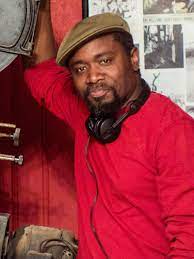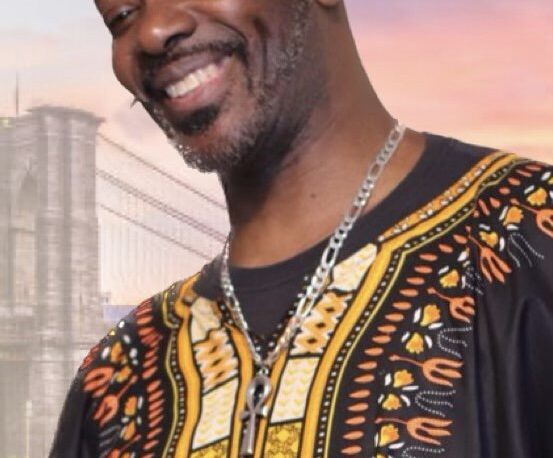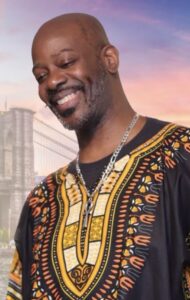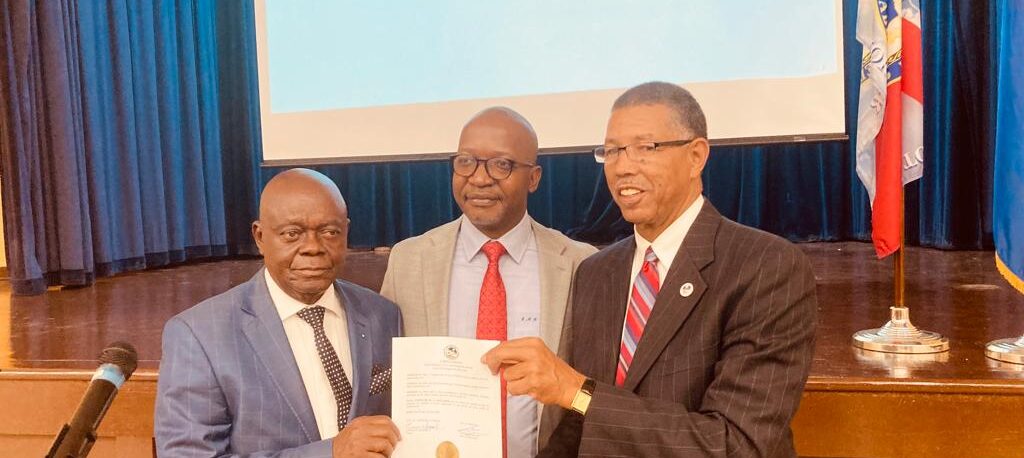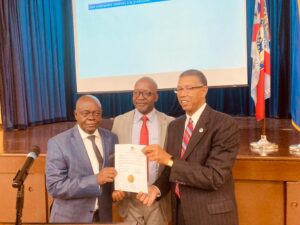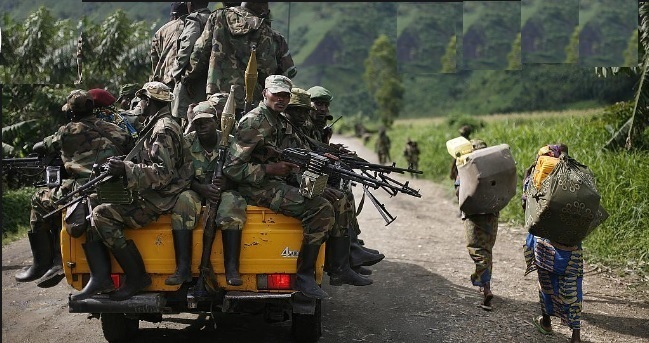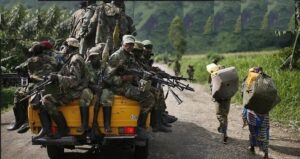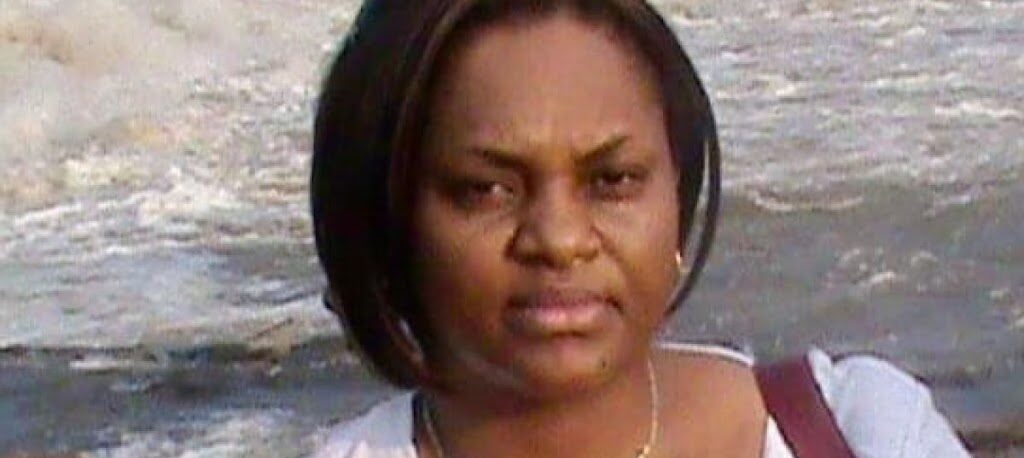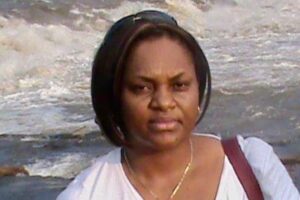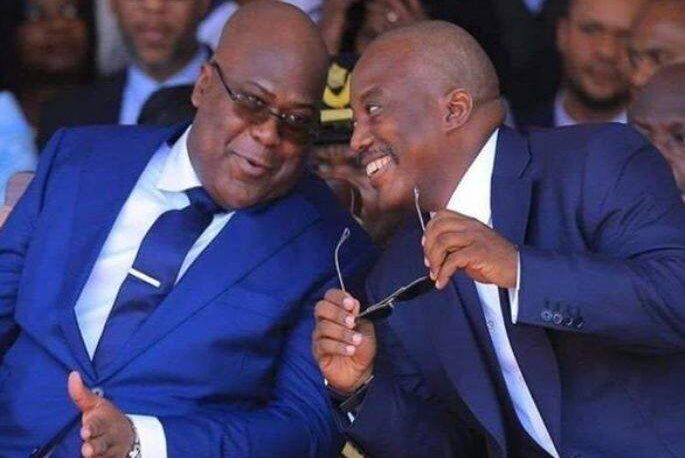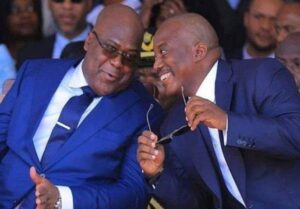Climate Crisis and the Congo Basin
By Kwaku Aurelien
Made up of eighteen percent of the world’s tropical forests, 10,000
plant species and 400 mammal species, the Congo
Basin in Central Africa provides household food security to over 75 million
people across 150 ethnic groups, courtesy of its 10,000 plant species and 400
mammal species, and is the second largest contiguous tropical rainforest.
Something we all know very well, however, is the urgency of the climate crisis.
We, members of Friends of the Congo,
will point you who are interested in doing something to combat the climate
crisis in the direction of the Congo Basin. Our objective is not to convince
any environmental justice organization to include the Congo Basin in their
organizing strategies, but to simply have them look into the Congo Basin,
because once they look into it, they will see its importance and work it into
their organizing strategies themselves.
In 2017, Congolese and
British scientists discovered a peatland in the central
Congo Basin covering an area of over 145,000 square kilometers (>56,000
square miles) – an area the size of England. A peatland consists primarily of peat – soil composed of the buildup
of partially decomposed organic matter over thousands of years. Why is this
important? Carbon sequestration.
Carbon sequestration is the process by which carbon dioxide is captured and
stored (United States Geological Survey). Peat sequesters
carbon more efficiently than any other vegetation type in the world combined (International Union for Conservation of Nature), with peatlands
storing twice as much carbon as all the world’s forests and damaged peatlands
accounting for five percent of global anthropogenic CO2 emissions.
It is estimated that the peat located in the Congo Basin in what is known as
the Cuvette Centrale (Central Basin)
stores over 30 billion metric tons of
carbon. To put into perspective how significant this is, 30 billion metric
tons of carbon is equivalent to
the amount the United States emits from burning fossil fuels over a twenty-year
span, and to the amount the entire world emits over three years. Perhaps more
amazingly, peatlands in the Congo Basin hold as much carbon as all of its trees
put together, despite only covering four percent of the entire rainforest. It
is for this reason that climate scientists stress the protection of the Congo
Basin. It is the only rainforest on the planet that sequesters more carbon than
it releases. Africans outside the Democratic Republic of the Congo (DRC) or
Republic of Congo are all too aware of its importance. During the Season of
Creation 2021, the Ecclesial Network for the Congo River Basin (REBAC) – a
Catholic coalition consisting of the DRC, Republic of the Congo, Central
African Republic, Cameroon, Equatorial Guinea, and Gabon – called the Congo
Basin “the second lung of the Earth” (Union of Catholic Asian News 2021). However, external and internal
forces threaten to transform an image as positive as a lung of the Earth to
something as menacingly sounding as a “carbon
bomb.”
Damian Carrington and Matthew Taylor of The Guardian defined a carbon bomb as “a project
capable of pumping at least 1 billion tons of CO2 emissions over
[its] lifetime.” Usually, these
are fossil fuel projects. In the case of the Congo Basin, the peat is
continually disrupted by international timber firms who clearcut trees
illegally. In fact, as of 2011, at least 87%
of the logging in the Congo was illegal, per Chatham House. Only eight percent
of the central Congo peat carbon is located in nationally protected areas.
Ninety-two percent is vulnerable to future land exploitation, per CongoPeat.
The Global North has very deceptively attempted to fearmonger over the
fact that the Congo has aspirations of increasing its oil production from
25,000 barrels per day to 1 million. They claim that doing so would destroy the
Congo Basin rainforests. While it is true that oil expansion poses a serious
threat, it cannot be ignored that the biggest
threat to this point has been the supply chain demands of foreign companies, who buy Congolese wood at a cheap price to fashion it into finished
goods and sell it back to the Congo at an exorbitant price.
There are multiple bad faith actors at play here. The Rwandan
government under Paul Kagame (Al Jazeera 2022) and the Ugandan
government under Yoweri Museveni (Africa Intelligence 2022)
are guilty of instrumentalizing a proxy rebel militia known as the March 23
Movement, or M23, to destabilize
Eastern Congo and exploiting its timber and mineral wealth. The Congo Basin
rainforests are at stake here, notably Virunga National Park, a UNESCO World Heritage Site (TRT World 2023). As a consequence of
M23’s activities, hundreds of thousands of Congolese have been displaced from
their ancestral lands. Illegal logging has become rampant, and it is estimated
that by 2030, thirty percent of the rainforest will have disappeared. If this
pace continues, it could mean the destruction of all primary forests by 2100 (National Geographic 2021).
A December 2021
article by The Washington Post stated that the Democratic Republic of the Congo “faces pressure to
preserve its peatlands and the vast stores of carbon they hold, or develop them
for profit, releasing an enormous carbon bomb into the atmosphere.” Friends of
the Congo cannot stress enough that the issue of the Congo Basin is not solely
a Congolese issue. It is not a Central African or an African issue. It is an
issue of humanity. It is an issue of the world and all who inhabit it. As such,
it cannot be solved without international cooperation – true, sincere
international cooperation. No longer can
false promises be tolerated, such as that which was made at COP26 by the
United States, European Commission on behalf of the European Union, United
Kingdom, and Bezos Earth Fund, among others, to imburse $1.5 billion between
2021 and 2025 to protect the Congo Basin. No
longer can neocolonialism be tolerated. Paul Kagame’s
Rwandan Patriotic Army received training from U.S. Green Berets in
the late 1990s. In turn, Kagame’s
military trained rebels in the DRC, then known as Zaire, in 1998 (The Washington Post 1998). Kagame today
is recognized in the West as someone whom African nations should look up to as
a model of modernization, his crimes against his fellow Africans ignored. When
attempts are made to hold him and other neocolonial agents accountable, the
United States runs diplomatic interference to protect them. Case in point; when
the United Nations learned that elements of the Rwandan military committed war
crimes constituting crimes against humanity in June of 1998, the United States,
in spite of the UN report and other indications of human rights abuse,
collaborated with Rwandan military units in a Joint Combined Exchange Training
in July (The Washington Post 1998).
Per The Washington Post article
“Africans Use Training in Unexpected Ways,” “U.S. officials defend[ed] the
collaboration by arguing that it is wiser to engage with Rwanda to help it
develop a human rights culture than to step aside and risk a new descent of the
country into chaos.” Almost twenty-five years later, it is apparent that human
rights is the U.S. and the West’s buzzword for imperialism, which Kwame Nkrumah
told us neocolonialism is the last stage of imperialism.
The Global North must make restitution to the Global South for
colonialism; otherwise, how easily can the Congo Basin, Amazon Rainforest, and
Indonesian rainforests among others see a restoration of their biodiversity?
Moreover, how else will forest communities get their just due? It was moving
reading chief Joseph Bonkile Engobo, a.k.a. Papa Joseph, say that if his forest
community of Lokolama was not paid for their role in protecting the peatlands,
they would “destroy them so everyone will die” (The New York Times 2022). No longer can extractivism be tolerated
as it is currently tolerated in the artisanal mining of cobalt and coltan in
the Congo by private industry. It can no longer be tolerated as it is currently
tolerated in the harvesting of palm oil by private industry at the expense of
the local population, who have been exposed to toxic waste generated by
Plantations et Huileries du Congo (PHC). Global North hegemony must be
dismantled to preserve lives, livelihoods, and the planet. As we’ve
demonstrated, in our unequal current world order, things such as a green
transition and vegan food products which seem positive on the surface are made
into points of extraction. There isn’t a state in the USA that can become fully
electric sans the Congo.
The most important people, whose voices must be heard and taken
seriously, are the indigenous people living on the land in the Congo Basin.
Members of the Congolese intelligentsia increasingly have wisened up to the
fact that radio is the
most effective means of organizing Congo Basin
residents, who already mobilize against the
destruction and seizing of their ancestral lands but who lack ready means of
coordinating organized resistance or learning new developments sans access to
electricity, Internet, and telecommunications. The Center for International Forestry
Research[1] [2] [3] (CIFOR) and its subsidiary Climate Change and Forests in the Congo
Basin (COBAM) created a radio program called “Following Changing Seasons.” It
is set in a debate format and is broadcast monthly by Cameroon Radio and
Television (CRTV), Cameroon’s national radio station. COBAM itself encompasses
Cameroon, DRC, Republic of the Congo, Central African Republic, Equatorial
Guinea, and Gabon. Its objective is to provide local communities with the
information necessary to implement projects that will guarantee reduction of
carbon emissions in forest areas. Perhaps the most vital point of this radio
project and others like it is that they provide a platform for frontline
community members and forest defenders that they otherwise would not have. A
Cameroonian radio journalist said the following about the CIFORCOBAM radio
program:
“Since we started rebroadcasting the
COBAM radio programme, people – particularly
farmers – have been coming to our studio for more information on how to
deal with
unpredictable seasons and have better harvests.”
The people
of the Congo Basin rainforests are fighting everyday for their lives and
livelihoods. Their coalescing into an organized movement will ensure victory
and bring about a lasting change.
For the perspectives of the Indigenous people who are asking what they
will get in return for protecting one of the world’s most important ecosystems,
visit www.nytimes.com/interactive/2022/02/21/headway/peatlands-congo-climate-change.html: “What Do The Protectors of
Congo’s Peatlands Get In Return?”
For more on the Congo Basin, visit www.congopeat.net. This website is a godsend, using models to simulate future development of peatland
ecosystems in the Congo Basin.
Listen to Maurice Carney, co-founder and Executive Director of Friends
of the Congo, on this issue on A Rude
Awakening, at 94.1 KPFA or at Apple Podcasts.
Works Cited
“A Rude Awakening with Maurice Carney, Samuel Yagase and Sophia
Murphy.” n.d. KPFA. Accessed January 13, 2023.
https://kpfa.org/episode/a-rude-awakening-october-14-2022/.
ADF. 2021. “Protecting Earth’s ‘Second Lung.’” Africa Defense Forum. October
15, 2021. https://adf-magazine.com/2021/10/protecting-earths-second-lung/.
“Africa Intelligence: Exclusive News on Africa.” n.d. Africa
Intelligence. Accessed January 13, 2023.
https://www.africaintelligence.com/central-africa/2022/12/14/report-by-un-experts-reveals-kampala-s-role-in-m23-s-advances.
Akinwande, Babatope. “Could Radio Help Mitigate Climate Change in the
Congo Basin? - Our World.” n.d. Ourworld.unu.edu. Accessed January 18, 2023.
https://ourworld.unu.edu/en/could-radio-help-mitigate-climate-change-in-the-congo-basin.
Bociaga, Robert. “How the M23 Advance Threatens DR Congo’s Endangered
Gorilla Population.” n.d. How the M23 Advance Threatens DR Congo’s Endangered
Gorilla Population. Accessed January 20, 2023. https://www.trtworld.com/magazine/how-the-m23-advance-threatens-dr-congo-s-endangered-gorilla-population-64154.
Brown, H.C. Peach. 2011. “Gender, Climate Change and REDD+ in the Congo
Basin Forests of Central Africa.” International
Forestry Review 13 (2): 163–76. https://doi.org/10.1505/146554811797406651.
Cannon, John. “The ‘Idea’: Uncovering the Peatlands of the Congo
Basin.” 2021. Mongabay Environmental News. December 2, 2021.
https://news.mongabay.com/2021/12/the-idea-uncovering-the-peatlands-of-the-congo-basin/.
Carrington, Damian, and Matthew Taylor. 2022. “Revealed: The ‘Carbon
Bombs’ Set to Trigger Catastrophic Climate Breakdown.” The Guardian. May 11,
2022.
https://www.theguardian.com/environment/ng-interactive/2022/may/11/fossil-fuel-carbon-bombs-climate-breakdown-oil-gas.
Center for Global Development. 2015. “Developed Countries Are
Responsible for 79 Percent of Historical Carbon Emissions.” Center for Global
Development. August 18, 2015.
https://www.cgdev.org/media/who-caused-climate-change-historically.
“‘Changing Seasons’: Using the Radio to Communicate and Exchange
Knowledge about the Fight against Climate Change in the Congo Basin Forests.”
n.d. Climate Change and Forests in the Congo Basin (COBAM). Accessed January
18, 2023. https://www2.cifor.org/cobam/multimedia/radio/.
“Climate Change and Forests in the Congo Basin (COBAM) - Synergies
between Adaptation and Mitigation.” n.d. Climate Change and Forests in the
Congo Basin (COBAM). Accessed January 18, 2023. https://www2.cifor.org/cobam/.
Coalition, Global Forest, and Oliver Munnion. 2020. “15 Years of REDD+:
Has It Been Worth the Money?” Global Forest Coalition. September 2, 2020.
https://globalforestcoalition.org/15-years-of-redd/.
“COBAM Project: Using the Radio as a Means of Effective Information Exchange
in Combating Climate Change in the Congo Basin - CBFP.” n.d.
Archive.pfbc-Cbfp.org. Accessed January 18, 2023.
https://archive.pfbc-cbfp.org/news_en/items/COBAM_Project-EN.html.
“Congo and the Climate Crisis: Frontline Voices from the Congo Basin.”
n.d. Www.youtube.com. Accessed January 13, 2023.
https://www.youtube.com/watch?v=XahAahu8zoc&ab_channel=FriendsoftheCongo.
“DRC Orders Expulsion of Rwandan Envoy as M23 Rebels Seize Towns.” n.d.
Www.aljazeera.com. Accessed January 18, 2023. https://www.aljazeera.com/news/2022/10/30/dr-congo-expels-rwandan-ambassador-as-m23-rebels-gain-ground.
“Exploring the Central Congo Basin Peatlands.” n.d. Www.youtube.com.
https://www.youtube.com/watch?v=44mtN3IJ46U&ab_channel=CongoPeat.
Gouby, Mélanie. “World’s Second Biggest Rainforest Will Soon Reopen to
Large-Scale Logging.” 2021. Environment. September 29, 2021.
https://www.nationalgeographic.com/environment/article/worlds-second-biggest-rainforest-will-soon-reopen-to-large-scale-logging.
Hang, Christi. 2018. “Where REDD+ Money Goes – and Doesn’t Go.” CIFOR
Forests News. June 5, 2018.
https://forestsnews.cifor.org/56531/where-redd-money-goes-and-doesnt-go?fnl=en.
Maclean, Ruth. 2022. “What Do the Protectors of Congo’s Peatlands Get
in Return?” The New York Times,
February 22, 2022, sec. Headway.
https://www.nytimes.com/interactive/2022/02/21/headway/peatlands-congo-climate-change.html.
Nzwili, Frederick. “Catholics in Africa Celebrate Congo Basin as
Earth’s Second Lung.” n.d. Www.ncronline.org. Accessed January 18, 2023.
https://www.ncronline.org/earthbeat/justice/catholics-africa-celebrate-congo-basin-earths-second-lung.
“Peatlands and Climate Change.” 2021. IUCN. December 1, 2021.
https://www.iucn.org/resources/issues-brief/peatlands-and-climate-change#:~:text=Peatlands%20are%20the%20largest%20natural.
Piabuo, Serge Mandiefe, Peter A. Minang, Chupezi Julius Tieguhong,
Divine Foundjem-Tita, and Frankline Nghobuoche. 2021. “Illegal Logging,
Governance Effectiveness and Carbon Dioxide Emission in the Timber-Producing
Countries of Congo Basin and Asia.” Environment,
Development and Sustainability, February. https://doi.org/10.1007/s10668-021-01257-8.
Popovich, Nadja, and Brad Plumer. 2021. “Who Has the Most Historical
Responsibility for Climate Change?” The
New York Times, November 12, 2021, sec. Climate.
https://www.nytimes.com/interactive/2021/11/12/climate/cop26-emissions-compensation.html.
“REDD+ Reducing Emissions from Deforestation and Forest Degradation |
Food and Agriculture Organization of the United Nations.” n.d. Www.fao.org.
https://www.fao.org/redd/en/.
Silverstein, Ken. n.d. “Illegal Logging and the Global North Threaten
Congo’s Rainforest — Not Oil Drilling.” Forbes. Accessed January 15, 2023.
https://www.forbes.com/sites/kensilverstein/2022/08/01/illegal-logging-and-the-global-north-threaten-congos-rainforest---not-oil-drilling/?sh=3bc0c2c63899.
Tata Ngome, Precillia Ijang, Charlie Shackleton, Anne Degrande, and
Julius Chupezi Tieguhong. 2017. “Addressing Constraints in Promoting Wild
Edible Plants’ Utilization in Household Nutrition: Case of the Congo Basin
Forest Area.” Agriculture & Food
Security 6 (1). https://doi.org/10.1186/s40066-017-0097-5.
“Why Is This Spot in the Congo Attracting so Much Attention? | Mongabay
Explains.” n.d. Www.youtube.com. Accessed January 12, 2023.
https://www.youtube.com/watch?v=Z-I_G1JlOyA&t=181s&ab_channel=Mongabay.
Umuhoza, Victoire Ingabire. n.d. “To Save the Congo Basin Rainforest,
End the Conflict in the DRC.” Www.aljazeera.com.
https://www.aljazeera.com/opinions/2022/11/12/to-save-the-congo-basin-rainforest-end-the-conflict-in-the-drc.
Uwera, Ley. n.d. “The Race to Defuse Congo’s Carbon Bomb.” Washington
Post.
https://www.washingtonpost.com/climate-environment/interactive/2021/congo-peatlands-carbon-emissions/.

